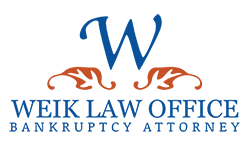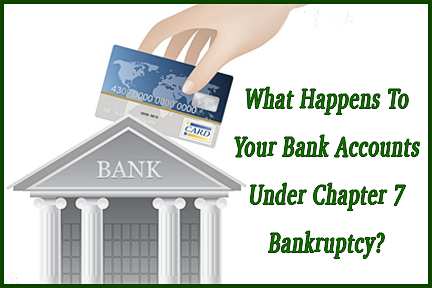GET HELP TODAY
When you’re drowning in debt, filing for Chapter 7 Raleigh bankruptcy can give you a much-needed reprieve. But if you still have a bit of money left in the bank, you’re probably wondering what will happen to it after you file. Will you be able to keep your savings and checking accounts, including whatever’s in them?
Here’s our answer: it depends on what you mean by “keeping.”
If you’re referring to your actual accounts, yes, you’ll be able to keep them for the most part. In general, banks won’t close your checking or savings accounts even if you file for bankruptcy as long as you’re in good standing.
In contrast, the answer is not as straightforward if you’re referring to the money inside those accounts.
In most states including North Carolina, very little of that cash is protected under bankruptcy. However, there are exceptions. Here’s how it works.
Bankruptcy Exemptions
Under Chapter 7, certain types of properties are exempt. This means that they can’t be taken by the bankruptcy trustee to repay your creditors. In other words, you keep them outright.
Now, each state has their own set of exemptions, and some of them also allow you to choose between state and federal exemptions. You can learn more about North Carolina’s specific exemptions by reading our previous article, Bankruptcy Lawyer in Raleigh Identifies Chapter 7 Bankruptcy Exemptions.
Is the Money in Your Bank Accounts Exempt Under Chapter 7?
To find out if the money in your account is protected, you’ll have to check your state’s bankruptcy exemptions. Weik Law’s bankruptcy lawyer in Raleigh will walk you through this during our consultation.
In general, however, here’s what you should look for:
- Cash on hand
In some states, exemptions can include a small amount of money on hand, which can include what’s in your bank accounts. However, many states don’t have this.
- Child support and alimony
In contrast, many states have an exemption for money that comes from child support and alimony.
- Crime victim compensation
If you were the victim of a crime and received money from the government, this is usually exempt in most states.
- Public benefits
Many states will allow you to keep a portion of any money you receive from public benefits, such as disability payments, Social Security, and unemployment benefits.
- Wages
Under Chapter 7, exemptions can protect a portion of your recent wages if they are in your bank account.
- Wrongful death and personal injury payments
Did you receive money as a result of a personal injury or wrongful death lawsuit or settlement before you filed for bankruptcy in Raleigh? Many states provide an exemption for this under Chapter 7.
- Wildcard exemption
Some states including North Carolina provide a wildcard exemption. This exemption covers a certain dollar amount that you can apply to any asset or property you’d like to keep. If a state has a wildcard exemption for $1, 500, for instance, you can apply it to your checking account and keep that amount. However, the bankruptcy trustee can take any amount over that.
- Other exemptions
There are other exemptions that will allow you to keep whatever’s in your bank account after filing for Chapter 7 bankruptcy in Raleigh. Again, we’ll walk you through your options during our personal consultation. Rest assured, your Weik Law bankruptcy attorney will do their best to help you keep as much of your money as possible.
Begin Your Debt-Free Journey Today
Here at Weik Law, we understand how filing for Raleigh bankruptcy can feel like you’re losing everything. However, that’s not true at all. In fact, it can be your ticket to rebuilding your life free from the crushing weight of debt.
Take that first step towards a debt-free life! Contact Weik Law Office today at 919-845-7877 to schedule a FREE consultation with one of our trusted and friendly bankruptcy attorney.

